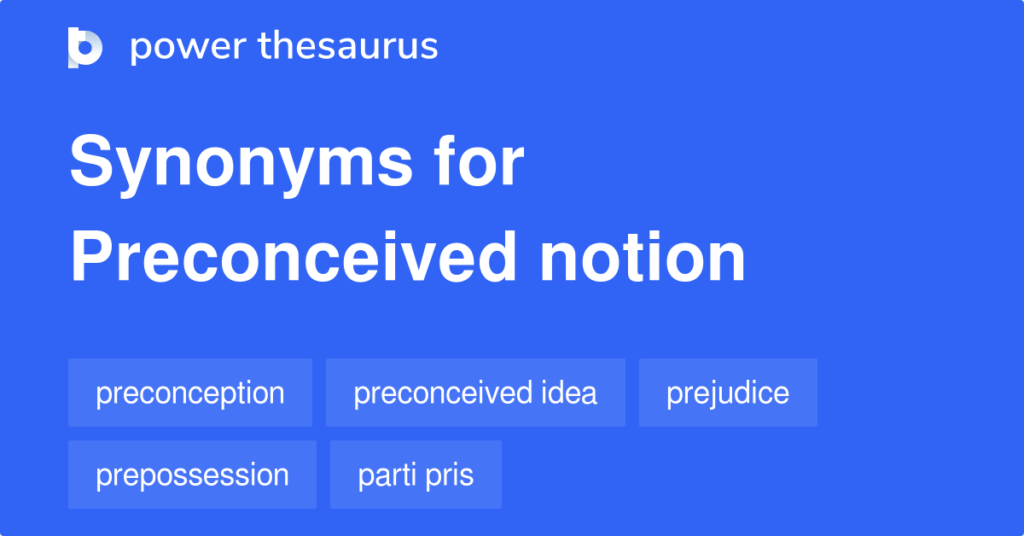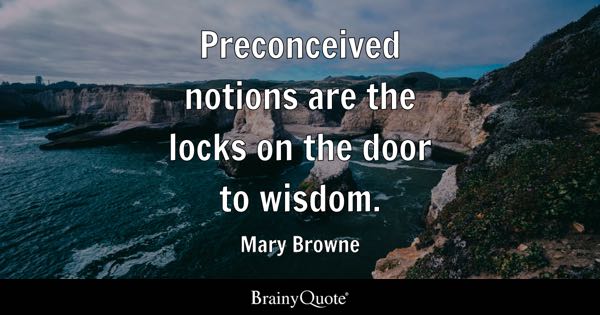Preconceived notions are beliefs or opinions we form before having enough information or experience about a person, situation, or topic. They often come from personal experiences, culture, or things we’ve been taught. While they can help us make quick decisions, they might not always be accurate and can limit our understanding of the world.
What Does Preconceived Notions Mean?
Preconceived notions are ideas or judgments we make without fully understanding the subject. For example, you might assume someone is unfriendly just because they seem quiet. These judgments are often based on stereotypes, past experiences, or societal influences. While they can save time by helping us make quick decisions, they often oversimplify complex issues and can lead to misunderstandings.
These notions can affect how we see people, events, or even ourselves. For instance, thinking you’re not good at math because of a single bad grade can hold you back from improving. Recognizing and questioning these preconceived notions is the first step toward a more open-minded and accurate understanding of the world.
Why Do We Have Preconceived Ideas?
Preconceived ideas come from various sources, including upbringing, culture, and media. From a young age, we absorb information from our families, schools, and communities. This shapes how we view the world. For example, if you grew up in a household that valued punctuality, you might assume people who are late are irresponsible, even without knowing their reasons.
Another reason we develop preconceived ideas is our brain’s natural tendency to simplify information. With so much happening around us, our minds create shortcuts to process it all. These mental shortcuts, known as heuristics, help us make quick decisions but can also lead to biases and errors in judgment.
How Preconceived Notions Shape Our Thoughts
Preconceived notions influence how we think and act in subtle but powerful ways. When we form an opinion about someone or something, our brain tends to focus on information that supports that belief and ignore anything that contradicts it. This is called confirmation bias. For instance, if you believe a coworker is lazy, you might notice when they take breaks but overlook their hard work.

These notions also affect our interactions and decision-preconceived notions. Imagine meeting someone from a different culture with the assumption that they’ll be unfriendly. This might make you act cold or distant, which could lead to an awkward interaction, reinforcing your belief. Recognizing how these ideas shape our thoughts can help us avoid jumping to conclusions.
Can Preconceived Ideas Be Helpful?
In some cases, preconceived notions can be helpful. They allow us to make quick judgments in unfamiliar situations. For example, if you’ve heard that a certain area is unsafe, you might avoid it and stay out of harm’s way. However, relying too much on these notions can limit our experiences and lead to missed opportunities.
Common Examples of Preconceived Notions
- Assuming someone’s intelligence based on their appearance.
- Believing all teenagers are rebellious.
- Thinking that a job interview went poorly because the interviewer didn’t smile much.
- Judging someone’s character based on their accent or where they come from.
How to Spot Your Own Biases
Spotting your own biases starts with self-reflection. Pay attention to your thoughts and ask yourself why you feel a certain way about someone or something. Are your opinions based on facts, or are they influenced by stereotypes or past experiences? Talking to others and seeking different perspectives can also help you identify biases you didn’t realize you had.
Can We Change Preconceived Notions?
Yes, we can change preconceived notions by being open to new experiences and information. It’s not easy, but with effort and self-awareness, it’s possible. Start by challenging your beliefs and seeking evidence that contradicts them. For example, if you believe that people from a certain profession are untrustworthy, try talking to someone in that field to understand their perspective.
Over time, exposing yourself to diverse perspectives can help break down stereotypes and build a more accurate view of the world. Remember, changing preconceived notions is a gradual process, but it’s worth the effort.
Tips to Overcome Preconceived Ideas
- Educate Yourself: Learn about different cultures, experiences, and viewpoints.
- Question Your Assumptions: Ask yourself why you believe something and whether it’s based on evidence.
- Engage with Others: Talk to people with different backgrounds and perspectives.
- Practice Empathy: Try to understand where others are coming from instead of judging them.
Listen to Different Perspectives
Listening to diverse perspectives can open your mind and help you see the world differently. When you hear someone’s story or learn about their experiences, it’s harder to hold onto stereotypes or unfounded beliefs. For example, meeting someone who defies a stereotype you believed in can completely change your view.

Challenge Your Assumptions
Challenging your assumptions means actively seeking out information that contradicts your beliefs. If you think a certain hobby or activity isn’t for you, give it a try before deciding. You might surprise yourself.
Stay Open-Minded
Being open-minded means being willing to change your opinions when presented with new information. It’s not about being indecisive but about being flexible and willing to grow. For example, if you’ve always disliked a certain type of food, trying it again with an open mind might change your opinion.
How Preconceived Notions Affect Relationships
Preconceived notions can put unnecessary strain on relationships. For instance, assuming a friend doesn’t care about you because they’re not good at expressing emotions can create distance. Instead, communicating and understanding their perspective can strengthen your bond.
Teaching Kids About Preconceived Notions
Teaching kids about preconceived notions helps them grow into open-minded and empathetic individuals. Start by explaining what these ideas are and why they’re not always accurate. Encourage them to ask questions, meet people from diverse backgrounds, and think critically about the information they receive. When kids learn to challenge stereotypes early, they’re more likely to carry those skills into adulthood.
The Bottom Line
Preconceived notions are a natural part of how our minds work, but they’re not always helpful or accurate. By recognizing and challenging these ideas, we can open ourselves up to new perspectives and experiences. Whether it’s through self-reflection, education, or engaging with others, overcoming preconceived notions leads to a more understanding and inclusive world.


